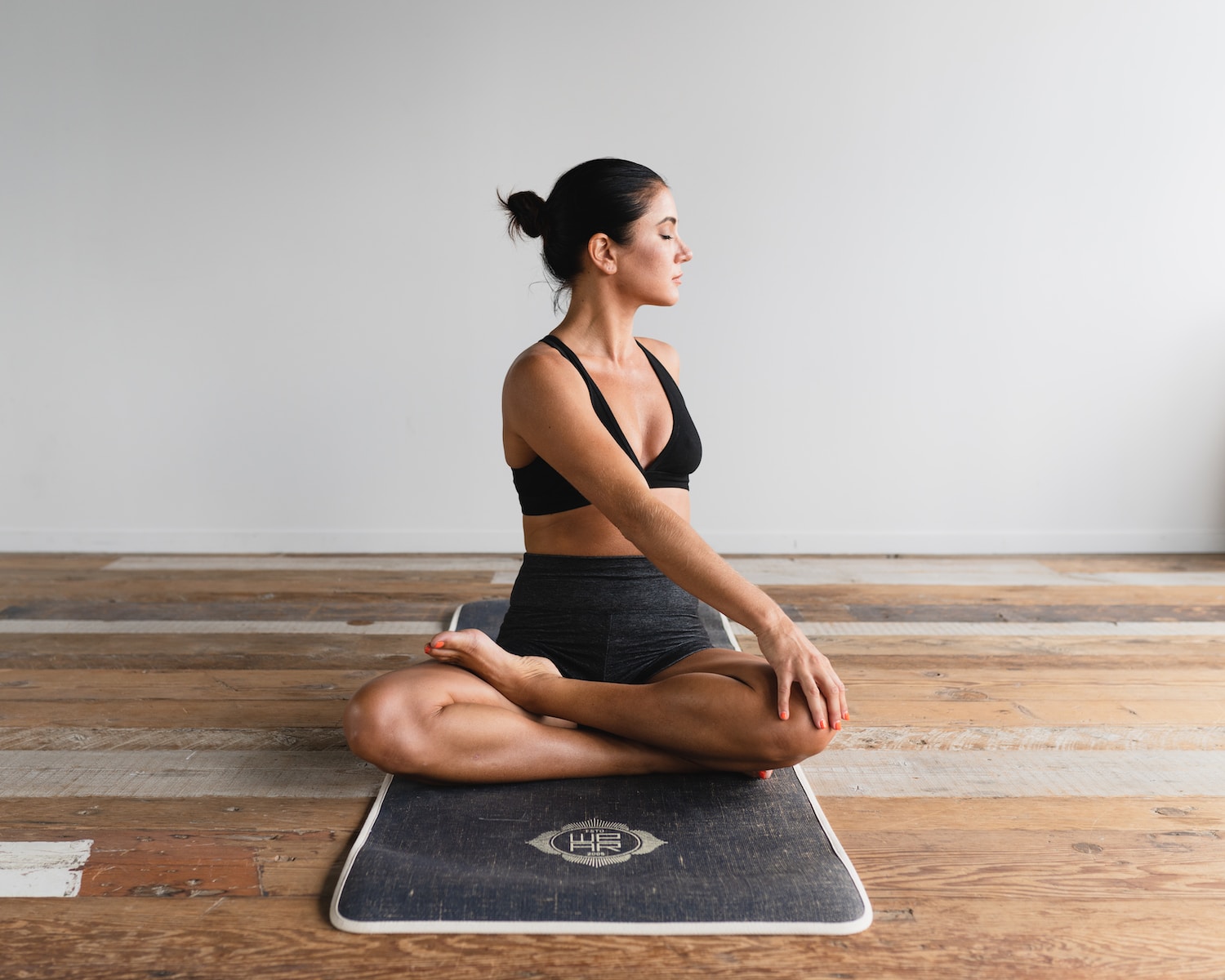Every woman who has experienced menstruation is familiar with the unwelcome companion that often accompanies those days: the overwhelming urge to overeat. The phenomenon of overeating during periods is not just a matter of indulgence; it’s a physiological and psychological response intricately tied to hormonal fluctuations and emotional triggers. Understanding the science behind this urge and discovering effective coping strategies can empower individuals to navigate these challenging times with grace and self-compassion.
Understanding Overeating During Your Period
Hormonal Fluctuations and Food Cravings
 During menstruation, the body undergoes significant hormonal changes, including fluctuations in estrogen and progesterone levels.
During menstruation, the body undergoes significant hormonal changes, including fluctuations in estrogen and progesterone levels.
These hormonal shifts can trigger intense cravings, especially for sweets, salty snacks, and comfort foods.
This natural inclination to seek certain foods is often at the root of overeating during periods.
Estrogen, which decreases during menstruation, is known to regulate appetite.
A drop in its levels can lead to increased hunger and cravings.
Progesterone, another hormone affected during the menstrual cycle, can cause water retention and bloating, which might intensify cravings for salty or sweet foods.
Understanding these hormonal changes can help in anticipating and managing cravings effectively.
Emotional Triggers and Overeating
 Besides hormonal influences, emotions play a pivotal role in overeating during your periods.
Besides hormonal influences, emotions play a pivotal role in overeating during your periods.
Stress, anxiety, and mood swings are common companions of menstruation.
For many, food becomes a source of solace, leading to overindulgence as an attempt to cope with emotional turmoil.
It’s essential to recognize the emotional triggers that lead to overeating.
Stress, in particular, can trigger the release of cortisol, a hormone associated with increased appetite and cravings for unhealthy foods.
Emotional overeating can be effectively managed by identifying stressors and developing healthy coping mechanisms such as deep breathing exercises, yoga, or spending time in nature.
Common Reasons for Overeating During Period
Stress and Overeating During Period
 Stress amplifies the urge to indulge in comfort foods, leading to a cycle of emotional eating.
Stress amplifies the urge to indulge in comfort foods, leading to a cycle of emotional eating.
Learning to manage stress through relaxation techniques, deep breathing exercises, or engaging in hobbies can significantly reduce overeating during periods.
Activities like meditation, journaling, or spending time with loved ones can alleviate stress and create a sense of emotional balance.
By consciously addressing stressors, individuals can break the cycle of emotional overeating.
Lack of Nutritional Awareness
 A lack of understanding about proper nutrition during menstruation can exacerbate overeating tendencies.
A lack of understanding about proper nutrition during menstruation can exacerbate overeating tendencies.
A balanced diet rich in vitamins, minerals, and fiber can stabilize blood sugar levels, reducing cravings and preventing excessive eating.
Including whole grains, lean proteins, fruits, and vegetables in meals can provide essential nutrients and energy, reducing the need for unhealthy snacks.
Moreover, staying hydrated is crucial, as dehydration can sometimes be mistaken for hunger, leading to unnecessary snacking.
Social and Cultural Influences
 Social gatherings, parties, and cultural norms often revolve around food.
Social gatherings, parties, and cultural norms often revolve around food.
The pressure to indulge and social expectations can lead to overeating.
Being mindful of these influences and developing strategies to navigate social situations without succumbing to overeating is crucial.
It’s essential to communicate personal boundaries and make conscious food choices assertively.
Opting for smaller portions, choosing healthier alternatives, and focusing on socializing rather than solely on food can help manage these situations effectively.
Effective Coping Strategies for Overeating During Period
Mindful Eating Techniques
 Practicing mindfulness during meals can enhance awareness of hunger and fullness cues.
Practicing mindfulness during meals can enhance awareness of hunger and fullness cues.
Overeating during periods can be mitigated by savoring each bite, eating slowly, and appreciating the flavors and textures of food.
Mindful eating helps recognize when the body has had enough, preventing excessive consumption.
Additionally, mindful eating encourages a non-judgmental attitude toward food, promoting a healthier relationship with eating.
Regular Exercise and Physical Activity
 Regular physical activity has numerous benefits, including regulating mood, reducing stress, and curbing cravings.
Regular physical activity has numerous benefits, including regulating mood, reducing stress, and curbing cravings.
Exercise stimulates the release of endorphins, which act as natural mood lifters.
Incorporating activities like walking, yoga, or dancing into the routine can significantly reduce the urge to overeat.
Moreover, exercise can help manage bloating and water retention, common symptoms during menstruation, making individuals feel more comfortable and less inclined to overindulge.
Building a Support System
 Sharing feelings and experiences with friends, family, or support groups can relieve emotions.
Sharing feelings and experiences with friends, family, or support groups can relieve emotions.
Knowing that others are going through similar struggles can alleviate isolation.
Additionally, seeking professional help from therapists or counselors can offer valuable coping strategies and emotional support during challenging times.
Therapy can provide a safe space to explore the emotional triggers behind overeating and develop healthier coping mechanisms.
Building a solid support system creates a sense of accountability, making it easier to stay on track with healthier eating habits.
Alternative Therapies and Practices
 Yoga and meditation are practical tools for managing stress and emotional imbalances.
Yoga and meditation are practical tools for managing stress and emotional imbalances.
These practices promote relaxation and mindfulness, reducing the likelihood of overeating during periods.
Herbal remedies such as chamomile tea and supplements like magnesium can also help alleviate PMS symptoms and cravings.
It’s essential to consult a healthcare professional before trying any supplements ensuring they are safe and suitable for individual needs.
Creating a Menstrual Wellness Routine
Importance of Self-Care During Periods
 Self-care is not an indulgence; it’s a necessity, especially during menstruation.
Self-care is not an indulgence; it’s a necessity, especially during menstruation.
Creating a self-care routine that includes warm baths, gentle massages, or engaging hobbies can provide comfort and distraction, reducing the focus on food.
Practicing self-compassion and self-kindness is crucial. Being understanding and patient during this time can reduce stress and the urge to overeat.
Tracking Menstrual Cycles
![]() Utilizing menstrual cycle tracking apps can help individuals anticipate cravings and mood swings.
Utilizing menstrual cycle tracking apps can help individuals anticipate cravings and mood swings.
Understanding the pattern makes it easier to prepare and implement coping strategies, reducing the chances of succumbing to overeating during periods.
Tracking apps help predict difficult days and empower individuals by providing a sense of control over their bodies.
Awareness of the upcoming challenges allows for proactive planning, making it easier to make healthier choices and resist cravings.
Seeking Professional Guidance
For individuals struggling severely with overeating during periods, seeking guidance from nutritionists or therapists can provide tailored solutions.
These professionals can create personalized plans addressing nutritional and emotional aspects, ensuring holistic support.
Nutritionists can help develop meal plans that stabilize blood sugar levels and provide sustained energy, reducing the urge to snack excessively.
On the other hand, therapists can delve into the emotional triggers behind overeating and provide strategies to cope with them effectively.
Conclusion
In coping with overeating during periods, it’s essential to remember that self-compassion and understanding are key.
Hormonal fluctuations, emotional triggers, and societal pressures are challenges faced by many.
By employing mindful eating, regular exercise, building a support system, and embracing alternative therapies, navigating through these challenges with resilience and grace is possible.
Remember, every woman’s experience is unique.
What works for one may not work for another. It’s a process of self-discovery, requiring patience and self-kindness.
By embracing effective coping strategies and being proactive in self-care, the battle against overeating during periods can be won, paving the way.
Are you tired of battling those overwhelming cravings during your period?
Understanding the science behind overeating during menstruation is the first step towards regaining control over your eating habits.
From hormonal fluctuations to emotional triggers and societal pressures, we've explored the intricate web of factors contributing to this challenge.
But here's the exciting part: you don't have to go through it alone.
The PrimaJust weight loss method offers you a powerful solution to effortlessly shed those extra pounds without the need for diet or exercise.
Imagine losing 1-3 pounds per week automatically, thanks to a method that unlocks your metabolism naturally.
Intrigued? Then it's time to take action.
Download our still free report today and discover "The Exact Method to Unlock Your Metabolism for All-Natural Weight Loss."
Don't let overeating during your period hold you back any longer—embrace a healthier, happier you now!
[Source]Free Report
Seeking effortless weight loss? Don’t miss out on your chance to book a free Weight Loss Clarity Call.
Achieve a new level of enlightenment with these essential related blog posts
-
Quit Weekend Overeating: Master Strategies for Success
When the weekend arrives, many of us find ourselves succumbing to the temptation of overeating,…
-
Self-Sabotaging Weight Loss: Unleash Effective Strategies
Embarking on a weight loss journey can be both empowering and challenging. However, amidst the…
-
Emotional Eating: Unveiling Triggers and Effective Strategies
Emotional eating is a common phenomenon where individuals turn to food to cope with their…














